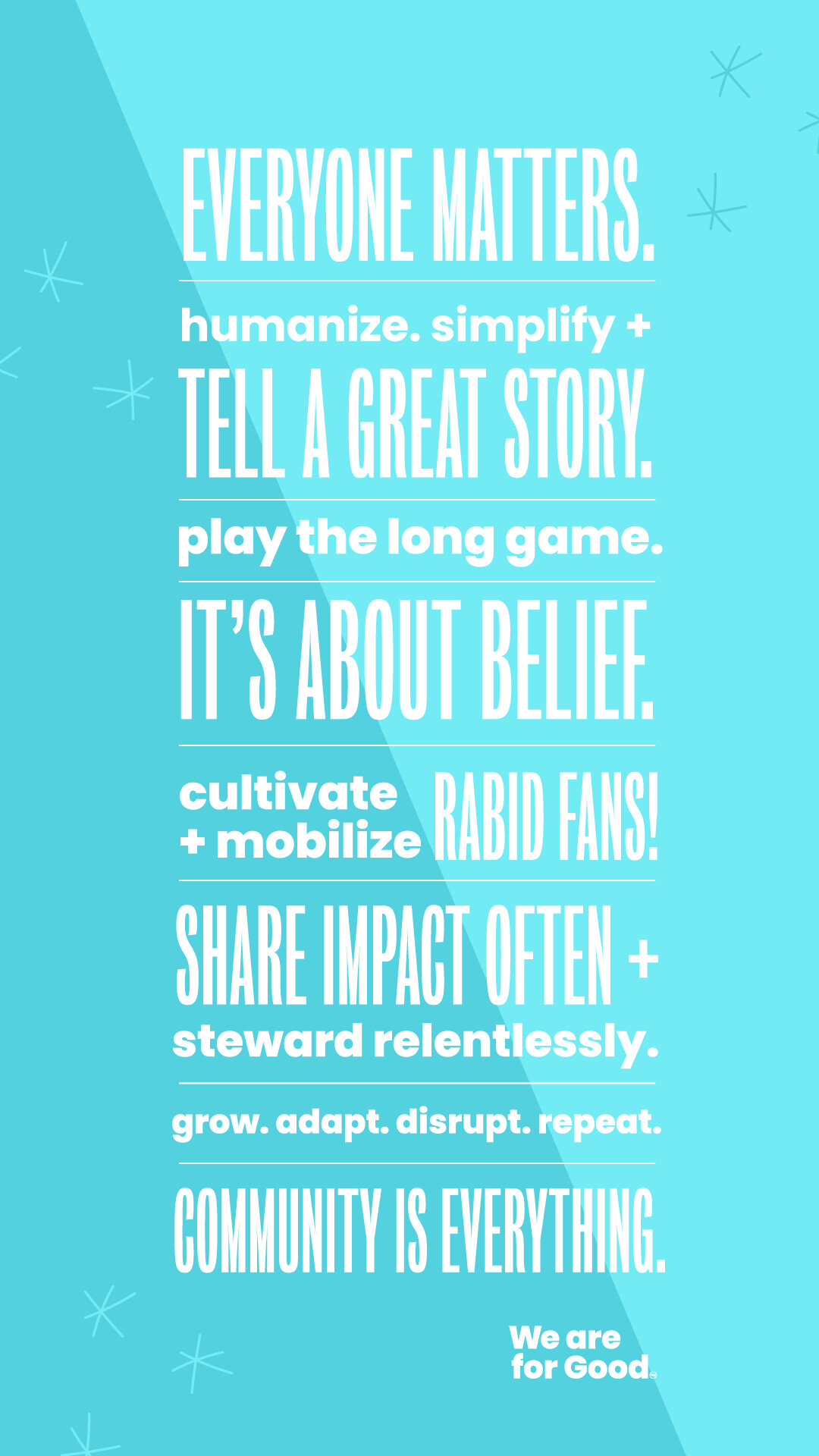453. How to Harness Innovation to Scale Meaningful Impact (Replay) - Evan Feinberg
Listen to this episode
Overview
Meet Evan. This starry-eyed dreamer sought to change the world first through politics before pivoting into the nonprofit sector after finding his passion awakened in social service. In five years, his organization built one of the largest and most effective anti-poverty nonprofit communities in the country. Tune in and hear how the Stand Together Foundation viewed poverty as an innovation problem and began to look for solutions in new spaces to unleash human potential. It's a brilliant discussion into innovation, storytelling & they're even giving funding away to high-impact orgs who are breaking cycles and changing lives. You might be one of them!
Today’s Guestd
Evan Feinberg, Executive Director, Stand Together Foundation
“There are people solving problems, seeking each other out, and uniting to drive transformation and progress. And that’s what gives me hope.”
Episode Transcript
Download Full Episode Transcript Here
Episode Highlights
Evan’s story and journey to where he is today (2:20)
An overview of the Stand Together Foundation (5:50)
Mee The Phoenix (10:00)
The Catalyst Program at the Stand Together Foundation (21:00)
Watch: Catalysts Mini Documentaries (25:00)
Treating counting metrics as value metrics (26:00)
A powerful moment of philanthropy in Evan’s life (35:00)
Evan’s One Good Thing: Focus on hope. (40:00)
Powerful quotes
“I really don't believe that the rules of our country of our states, it's not what makes the world go round. What makes the world go around are the principles beliefs paradigms, that we have the norms, beliefs, expectations that we have of ourselves of one another. And that culture is what really matters. And frankly, there's a lot more opportunity for collaboration and agreement and shared progress when we focus on culture.” -Evan
“I think it's worth all of us considering the prevailing approaches to solving problems in communities, knowingly or unknowingly, or to treat people that are experiencing problems, people that are in poverty, as broken and deficient, and in need of top down outside expert help to solve their problems to fix them.” -Evan
“Even the very well intentioned efforts out there are making sort of human suffering less, they are making poverty easier to under, but these efforts are actually making poverty harder to escape.” -Evan
“We're treating poverty as a resource problem to be mitigated. When that’s not right. Instead, people are not problems to be managed, people are assets to be unleashed. And so poverty is actually an innovation problem.” -Evan
“So poverty, if it's an innovation problem, you have to look in completely different places for how to solve it, you don't look to experts in Washington, DC, or philanthropists that have studied the problem quite a bit. You've got to look to social entrepreneurs that are discovering new and better ways of unleashing human potential.” -Evan
“We've tried to lead the way by finding these innovators, giving them a platform, helping them to have stronger management approaches, stronger measurement frameworks, and really more robust vision for what they can accomplish.” -Evan
“Most philanthropy is set up to advance compliance to some evidence based best practice that somebody learned in a college class or through some random control study, which I'm not against random control studies. But there are indeed metrics they they help us to think about what maybe we should try and what's worked in the past, but they aren't funding social entrepreneurship. Instead, we have to find those Sean's and understand their secret sauce and invest in them.” -Evan
“Anyone who's taking any risk or trying to discovering new things, to transform the lives of others that to me as a social entrepreneur.” -Evan
“It’s not that we don’t care about how many people you served or, or services rendered, meals delivered, beds that people were able to utilize, etc. But those are counting metrics. And if you treat them as value metrics, you’ll measure how much of the problem you’re managing versus how much of it you’re solving.” -Evan
“But for us, a vision is not just, you know, your North Star, it's what capabilities do we have? And who can we create value for? And what are the ways that we're thinking about to create the most value for those customers those opportunities?” -Evan
“We basically train organizations to apply those mental models and the whole goal of it is how do I unleash the ingenuity of every staff member, every volunteer, every donor, every board member, unleash their ingenuity on the problem we're solving by having those frameworks in place, rather than turn my organization into an efficient bureaucracy that pushes out a program or an idea or whatever it might be.” -Evan
“These incredible healers in our communities just naturally unite. There's no longer politics and debate and despair. There's unity and hope and focus.” -Evan
“There are people solving problems, seeking each other out, and uniting to drive transformation and progress. And that's what gives me hope.” -Evan
Connect with Evan
Connect with stand together foundation
Website / Catalyst Program / Facebook / Twitter / LinkedIn / YouTube
CONNECT WITH JON
CONNECT WITH BECKY
CONNECT WITH WE ARE FOR GOOD
Support the We Are For Good Podcast
Join the We Are For Good Community
You can think of it as the after-party to each podcast episode 🥳
Say hi👇
LinkedIn / Instagram / Facebook / YouTube / Twitter










